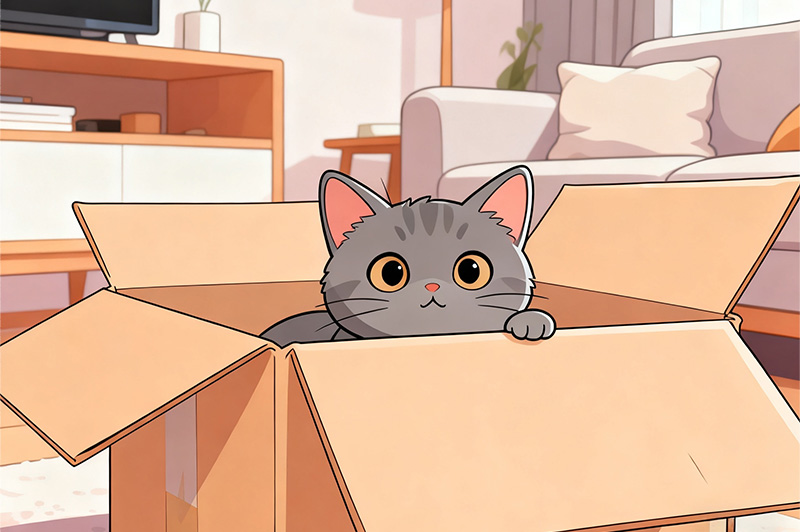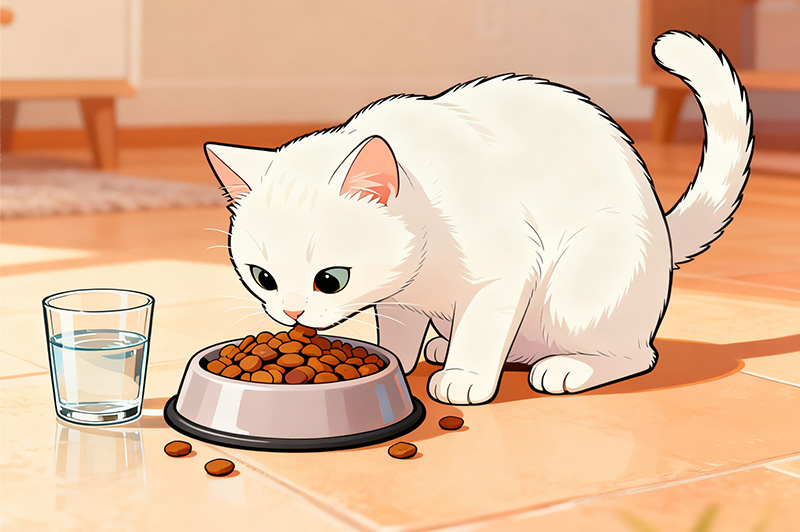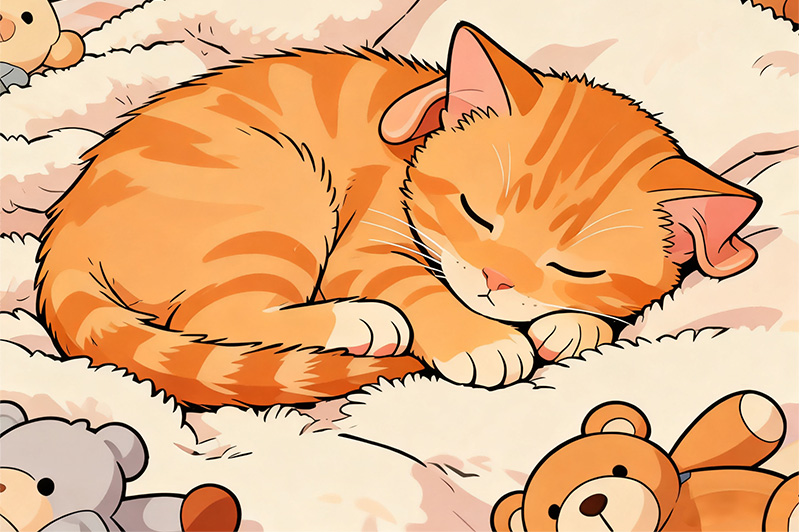

Dec. 31, 2025
Lethargy—when cats show unusual tiredness or lack of energy—can worry many pet owners. Understanding its potential causes helps you better care for your feline friend. Below are 4 common reasons for cat lethargy:

1. Ordinary Fatigue: Cats Need Rest Too
First, it’s important to know that cats are creatures that require adequate rest. They spend a lot of energy on daily activities like playing, exploring, and grooming. Sometimes, what seems like "lethargy" is just your cat feeling tired and needing a quiet spot for a nap. This type of fatigue is usually temporary: with enough rest, your cat will quickly regain energy. So, don’t panic if you find your cat sleeping more than usual—it may just be recharging!
2. Environmental Changes: Adaptation Is Needed for New Homes or Family Members

Cats are extremely sensitive to changes in their living environment. For example, a new family member (whether human or another pet), moving to a new house, or even rearranging furniture can make cats feel anxious or uneasy. In response, they may become shy, hide, or show signs of lethargy. To help, you can prepare anti-stress products for your cat (as advised by a vet) and give them plenty of time and space to adapt. Extra care and patience during this period will go a long way.
3. Dietary Issues: Poor Eating Leads to Low Energy
A cat’s diet directly impacts its health and energy levels. If your cat doesn’t eat enough, or if the food is low-quality, mismatched to its age/needs, or even allergenic, it may suffer from malnutrition—one of the main causes of lethargy. The basics of cat care include providing fresh water and high-quality, age-appropriate cat food. Additionally, observe your cat’s eating habits: if you notice signs of food allergies (e.g., lethargy, skin irritation) or reduced appetite, consult a vet to adjust its diet promptly.

4. Lack of Exercise: Long-Term Inactivity Triggers "Body Protests"
While cats love lounging in the sun, regular exercise is crucial for their physical and mental health. If your cat stays inactive for long periods, it may gain weight (leading to obesity) and experience low energy or mood swings—both of which manifest as lethargy. Encourage your cat to exercise moderately: use interactive toys (e.g., feather wands, laser pointers) for playtime, or set up climbing towers to stimulate movement. This not only maintains their physical health but also keeps their mind active.